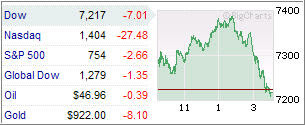Recently, reader Robert submitted a video clip analyzing the history of money printing and its recent acceleration. Take a look at it, and then we’ll discuss some of these issues:
http://www.youtube.com/get_player
Sure, long-term, there will be an inflationary effect, and I’ll comment more on that tomorrow. But what about the dollar? Will it be sharply devalued as the effects of reckless printing will filter down into the economy over the next few years?
I am not so sure. From my non-economist view, I think the video is too one sided, because it overlooks one critical aspect, which was never applicable to any degree in the past.
The bursting of this current credit bubble has affected all industrialized countries in all parts of the world. It may have started in the U.S., but it spread like a wildfire exempting no one along its destructive path. Over the past few months, the daily headlines have read like a “who’s who” by listing country after country implementing their own version of bailout and stimulus packages.
To me, here’s where it gets sticky. If all industrialized nations follow the same path of printing money to prop up their respective economies, will that not weaken their currencies as well?
Is it not true that, if only one country engages in the reckless printing of money, its currency will lose value only when compared to those countries with a more responsible monetary policy?
This is where I believe we have entered unchartered territory. All nations are doing the same thing, which does not make it right, but I am wondering if we, as a world community, will really be suffering from a bout of currency devaluation? Somehow I can’t see how, given these circumstances, we will all be devaluing when there is no longer a standard currency to peg to.
Let’s assume that magically a major country emerges that does not participate in these money creation efforts, was not effected by the global crisis and has otherwise proven to be fiscally responsible, then our dollar would slide against that super currency. However, in relation to all others, the effect should be minimal and vary only to a small degree.
I have not heard anyone addressing this issue with the global view in mind. If you have more information on this important topic, please post your comments.





